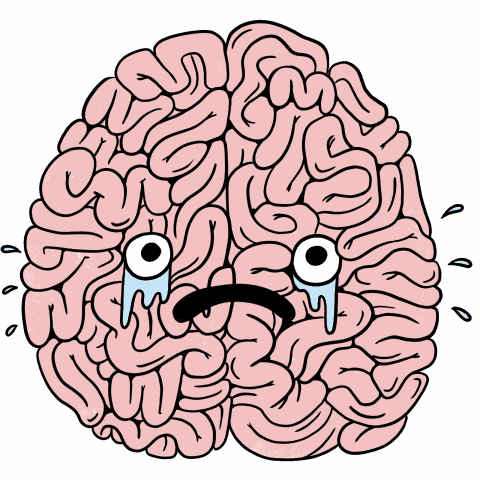As finals approach, a familiar crushing sensation of impending doom is settling over the undergraduate body. The Sheaf is here to help you understand your brain during finals and maybe help improve your test-taking abilities.
We all have unique coping mechanisms to survive those first three weeks in April when the snow melts along with our hopes and dreams. Procrastination is a cherished pastime for many and I too love wasting my days with Netflix and bubble baths — until the deadlines come crashing down on me.
One of the exam strategies that undergraduate students often employ is the cherished all-nighter. Some stressing students choose to drown their sorrow and panic with caffeine, while attempting to cram a semester’s worth of information into their brains in just a few hours’ time.
Others have a more lax approach to finals season — a friend of mine once hooked up with someone the night before an exam. The next morning, he announced to his date that he had a final to write, and fumbling with his pants, dashed out the door. This is a method reserved only for the bravest among us.
Clearly, some tactics are better than others. Whether you are an organized student who crafts flashcards three months in advance or one who is searching for a crumpled page smeared in inky, undecipherable notes, you can always improve your study habits.
It might be good to start by understanding the abyss where facts and equations go to die: your brain. Inside its squishy pink folds lie a series of strange structures that are critical to your test-taking abilities.
The hippocampus plays a crucial role in learning and memory. It lights up in fantastic bursts of neuronal fireworks, while you sit in that horribly uncomfortable wooden chair trying to regurgitate the stages of mitosis. You could look at the hippocampus as an important relay circuit for your memories — illuminating the cherished information you seek.
Also closely linked to memory is the almond-shaped amygdala. It oversees a lot of emotional data — especially fear. Nothing gets a person’s heart rate up quite like a final exam, and this stress can have unique implications for your memory. Research shows that undergoing a little stress when forming new memories helps those suckers get consolidated.
The brain likes continuity. If you learned how to conjugate verbs while stressing at your desk, then your amygdala may have a better chance of digging up that information when you really need it. The key is moderation — a little stress goes a long way, while too much stress will be detrimental to your memory.
Last semester, a USask Confessions post told the tale of one student who enjoyed some carnal activities with recorded lectures playing as a soundtrack. Don’t do that — for many reasons. There is no way your brain is holding on to any of the information introduced while it is being flooded with waves of pleasure. Keep the sensual and the scholarly domains separate — your sex life deserves better.
Lastly, don’t cram. I impart this wisdom to you while attempting to learn a semester’s worth of biochemistry in two weeks. We all do it, but we really shouldn’t. Memorization won’t do you any favours, as any facts you retain long enough for the exam will evaporate into the ether soon after.
The human brain works best when it can use associations to recall information from its dark depths, so understanding is key. If you truly comprehend the information, you are going to be able to draw on those associations to dig up even the most concealed data.
Hopefully, you’re a little wiser after this quick and dirty look at the dynamic between your brain and final exams. We can avoid the cyclical trap of procrastination and panic by taking time for comprehension and building up those associations. Sprinkle in a dash of fear, but try to keep it from boiling over. Appreciate your brain, and it will return the favour.
—
Erin Matthews
Graphic: Jaymie Stachyruk
Leave a Reply